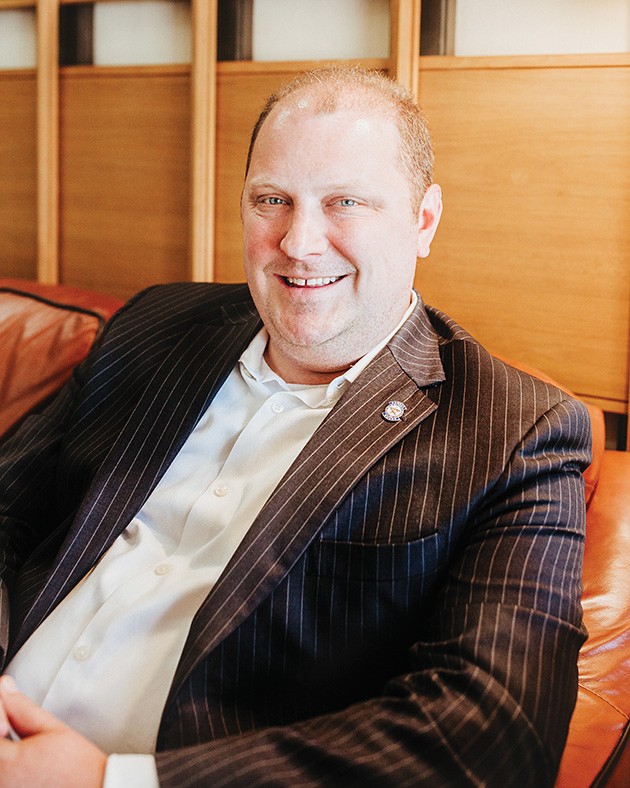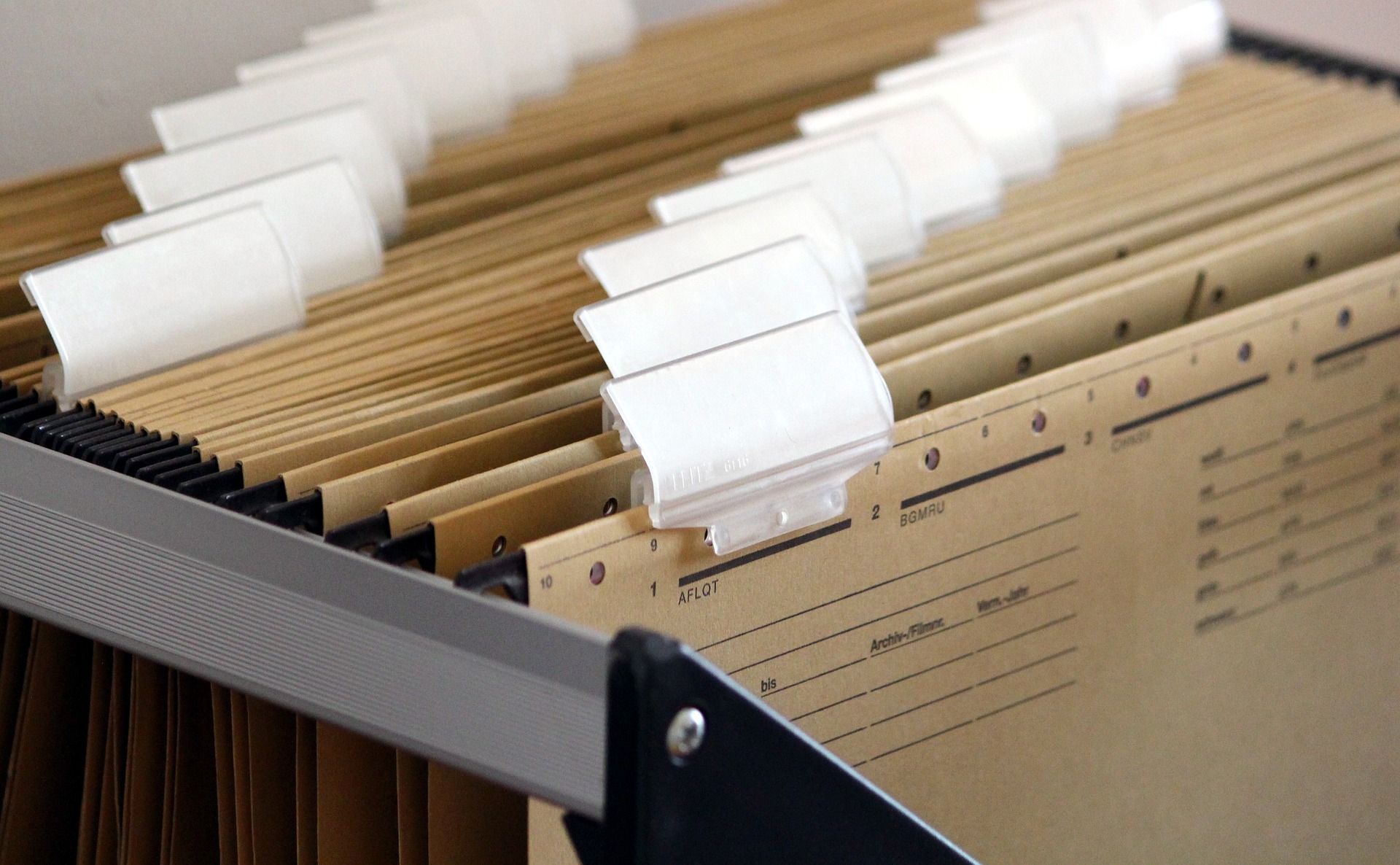June 26 is the one-year anniversary of the vote to legalize medical cannabis. Oklahoma Gazette looks back at the first year and glances toward the future for the cannabis plant in the state.

Oklahoma House majority floor leader Jon Echols || Alexa Ace
On June 26, 2018, more than 892,000 Oklahomans flooded the polls. They chose Kevin Stitt as the Republican gubernatorial candidate and Drew Edmondson as the Democratic one.
An item on the ballot was State Question 788, which read in part, “This measure amends the Oklahoma State Statutes. A yes vote legalizes the licensed use, sale, and growth of marijuana in Oklahoma for medicinal purposes. A license is required for use and possession of marijuana for medicinal purposes … Shall the proposal be approved?”
With 100 percent of precincts reporting, 507,582 Oklahomans, or 56.86 percent, marked “yes,” changing the course of state history and making Oklahoma the 30th state to offer medical cannabis.
The ballot measure included provisions to ensure swift implementation of the voters’ will. After a short battle with the state health department, voters got their way and Oklahoma Medical Marijuana Authority began issuing licenses to patients and businesses. Four months to the day of its passage, it became legal for patients to purchase and possess cannabis products containing THC.
“We’ve certainly exceeded my expectations, in terms of the number of patients we’ve onboarded, in terms of the number of licenses granted, the amount of retail sales that have occurred over the course of just the first half of 2019,” said attorney J. Blake Johnson, founder of Climb Collective and a partner at Overman Legal Group. “The amount of taxes and fees that have been collected by this state and the amount of economic impact that the industry has had, in general, has surpassed even my very optimistic expectations. We’re going to crush everyone’s projections and estimates.”
Johnson was formerly the co-chair of Crowe & Dunlevy’s Cannabis Industry Practice Group and projected that the ballot initiative would pass even in one of the country’s most conservative states. He spent the past year assembling a broad and deep roster of cannabis industry clients across all areas of the industry. He said that cannabis victories and failures in other states have provided a road map for Oklahoma’s program.
“The industry was already quite mature outside of Oklahoma, and I think we benefited from a lot of sort of institutional experience that we could rely on outside of our own borders in terms of industry expertise,” Johnson said. “A lot of solutions are available to us that weren’t available five years ago in terms of payment solutions, in terms of tax strategies, legal infrastructure, et cetera, so I think we benefited from that. And then, in addition, in terms of how it’s happened so quickly in Oklahoma, I think that’s a product of the way the law was written. It is, I think, one of the more, if not the most, easy to access medical marijuana systems, both from the perspective of a patient or an industry participant. So it’s not shocking to me, in light of how robust and enormous this industry has become outside of Oklahoma, to see a very industry-friendly infrastructure, once in place, foster an initial explosion of economic momentum.”
In the year since medical cannabis became the law of the land, Oklahoma has seen a green rush unprecedented in any other medical state. OMMA projected 80,000 patients in its first year of licensing, or by Aug. 26. The state is on course to double that projection in less than a year. As of June 17, 2019, 144,018 patients, 1,118 caregivers and 5,838 businesses have applied for licenses.

Under SQ788 provisions, Oklahoma adopted some of the most progressive medical cannabis laws in the nation. || bigstock.com
More than 95 percent of both patients and businesses have already been approved. Many of the remaining 5 percent have not been denied but are still being processed.
As of June 20, OMMA had collected more than $7.1 million in revenue from patient licenses and more than $11 million in commercial licenses, according to OK.gov.
In sales taxes alone, cannabis generated more than $6 million in the first five months of 2019.
After SQ788 was affirmed by voters, Gov. Mary Fallin released the following statement:
“I respect the will of the voters in any question placed before them to determine the direction of our state. It is our responsibility as state leaders to look out for the health and safety of Oklahoma citizens. As I mentioned in previous public comments, I believe, as well as many Oklahomans, this new law is written so loosely that it opens the door for basically recreational marijuana. I will be discussing with legislative leaders and state agencies our options going forward on how best to proceed with adding a medical and proper regulatory framework to make sure marijuana use is truly for valid medical illnesses.”
Fallin chose not to hold a special session to address industry infrastructure and regulation, which allowed the industry to boom with very limited oversight and supervision. Millions upon millions were invested by Oklahomans, and an influx of other cannabis businesses with experience in medical or recreational cannabis laws from other states were open by the time the legislative session began in February.
“We’ve certainly exceeded my expectations, in terms of the number of patients we’ve onboarded, in terms of the number of licenses granted, the amount of retail sales that have occurred over the course of just the first half of 2019.”— J. Blake Johnson
In the four months of the session, a number of bills regulating the industry were passed, including House Bill 2612, or the “unity bill,” and House Bill 2601, or the “cleanup bill.” Both created a more comprehensive, though limited framework for the industry.
“I would give the overall session a B+ to an A- when it comes to [SQ]788 and upholding the will of the voters,” House majority floor leader Rep. Jon Echols (R-Oklahoma City) said. “There was some stuff that happened that I wasn’t too fond of, but that’s the legislative process. But I think overall, we did a really good job implementing what the voters told us to implement. And I think that is best evidenced by most medical marijuana bills; most 788 bills that went on the floor this year had pretty broad bipartisan support, which I think goes to show that everybody was engaged from the Democrat side to the Republican side and everybody was trying their best to work together.
“What I’m most proud of is something we didn’t do, something we refrained from doing. I’m most proud that we didn’t go in and push back the enactment date. Because when the people spoke, they said they wanted a quick enactment, and I’m most proud, while there was pressure and there were groups that wanted to do that, I’m proud that we didn’t. I personally think we went too far on safety-sensitive jobs, but there are a lot of members that think we didn’t go far enough. I’m really proud, in [HB]2612, that we did not put caps on how many growers there could be or how many dispensaries there could be. I think that’s anti-free markets, and as a Republican, I’m still a capitalist and I think people should have that opportunity. And when we brought in the drafters, and it was a broad coalition that drafted [SQ]788, they all said the same thing. Their vision was people would have an opportunity to go see what they can do. So overall, I say it was a really good product. That’s part of the legislative process. Instead of one side or the other side, the House or the Senate or the Republicans just ramming it down somebody’s throat, we kept trying to find that point of compromise, where nobody got everything that they wanted but we all got enough that we could say, ‘Okay; we’re for this.’ Because as a legislator, if you hold out for the perfect, you’re never going to be for anything. Everybody has 101 different opinions. But overall, I think it was pretty good.”
The safety-sensitive provisions of HB2612, which prevent some patients from possessing licenses while they labor in certain occupations, has been legally challenged. Leslie Collum, a registered nurse, medical cannabis patient and dispensary owner, argues that the new legislation runs counter to the aims of SQ788. The first hearing in her case regarding the matter is set for July 26 in Oklahoma County District Court.
Cannabis activists
Activist Chris “Uncle Grumpy” Moe has also been on the front lines of medical cannabis in the state. He drove back and forth between the state Capitol and his home in Muskogee County, a 250-mile, four-hour round trip, to defend the spirit of SQ788 during the legislative session.
“This is not about selling weed in Oklahoma,” Moe said. “This is about medical choice, about me being able to medicate my house for the things that I have to address so that I can go out in that world and succeed without fear of my door getting kicked in and me being prosecuted for wanting to be like everybody else. That’s all I want to do is be like everybody else. Cannabis helps me do that.”
Moe has been using cannabis to quell anxiety and treat pain from a broken spine that has resulted in seven surgeries over the past 15 years. His story is not uncommon among medical cannabis patients.

Cannabis activist Chris “Uncle Grumpy” Moe || Alexa Ace
“Throughout my life, I have had a lot of struggles, and I have gone back in these last couple years since I’ve learned how it really is medicine. I’ve gone back and looked at my life and looked at when things were going good, when things were going bad. But things were going good when I stopped listening to the naysayers and the reefer madness, and I used my cannabis in the dark of my room before going out in public and nobody knew where I could be normal like everybody else. And so I started to figure out that it was all these other drugs I was mixing in, the alcohol mostly, that was destroying my life, and the only time I had good normal relationships was when I use cannabis on a regular basis because I was capable of it then,” he said. “The doctors were giving me pills after pills after pills. I got up to 9,855 pills a year. 9,855 pills a year, stack that up. I started using cannabis all the time, microdosing all day. I quit all those pills. For 90 days, I was in too much pain and too miserable to not go back on some pain medicine. To this day, I take less than 2,000 pills a year, including my blood pressure medicine. You think, ‘Wow. 2,000 is a lot.’ Did you hear that in the first number? 9,855 pills a year; less than 2,000 is nothing, and I’m only alive because of that cannabis. My issues were not just the pain. The doctors had to give me Xanax and Valium and antidepressants and pills to get me up and pills to put me to sleep because I was missing something, and it was all in that cannabis plant. Because when I was using cannabis in my life, I did not need all those pills. But if I went to the doctor and said, ‘I’m having a really hard time this week,’ he would up my Valium or he would up my Xanax on top of my pain pills. I was on more pain medicine than an amputee, and I quit it all because of cannabis. This has literally saved my life.”
Norma Sapp was right beside Moe during much of the legislative session. A lifelong activist, Sapp has actively campaigned for the legalization of hemp and cannabis for more than 30 years.
“A majority of our legislators get it after seeing that the miracles that we’ve seen with CBD, and it’s been out a couple, three years now,” Sapp said. “They understand it is a medicinal plant. But we had some holdouts in the Senate, and I’m not gonna name names, but those people will come up for election in 2020.”
She said that while one fight has been won, the battles continue today and will continue tomorrow, but she has not given up on the original reason she joined the cannabis movement: hemp.
In addition to industrial products and other commercial applications, hemp also rejuvenates soil and is called a “superfood” by many.
“I am very, very excited for next planting season because then there’s going to be many more acreages of hemp being grown,” Sapp said. “And that industry is going to double what the cannabis industry is doing now, I guarantee you.”
Near the end of the legislative session, Gov. Stitt also signed House Bill 1269, which applied previous legislation that made simple drug possession a misdemeanor retroactively. The number of people who will be released from prison for cannabis-related crimes is yet to be seen, but the possession of small amounts of cannabis without a license is now punishable only by a $400 fine.
“We still have prisons that are overpopulated and primarily overpopulated by nonviolent drug offenders, both cannabis and other drug offenses,” Johnson said. “And especially those of us who are now profiting off of the sale of this product, whether you call it a moral or ethical responsibility, we owe it to the people who populate those jail cells to see to with it, some of the resources, some of the political leverage, et cetera, that we’re developing out here is being devoted to righting those historical wrongs. It’s unacceptable that what I expect to be one of the largest per capita medical cannabis industries on the planet is also the largest per capita prison population.”
Previously published on Oklahoma Gazette.




